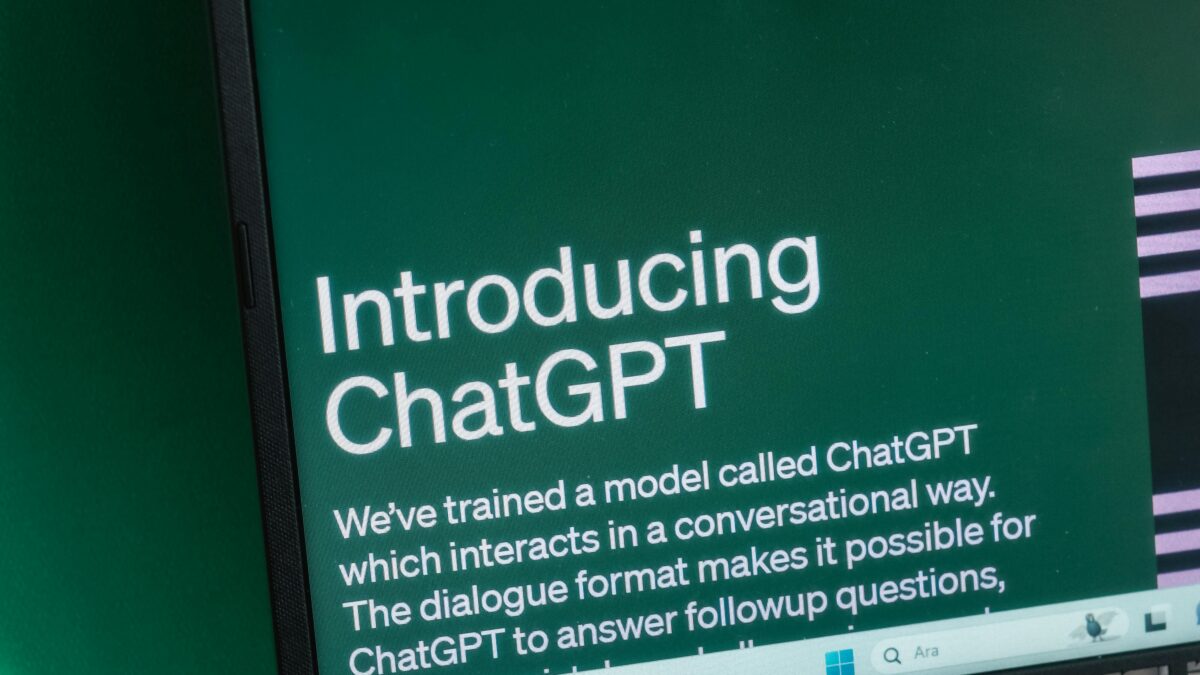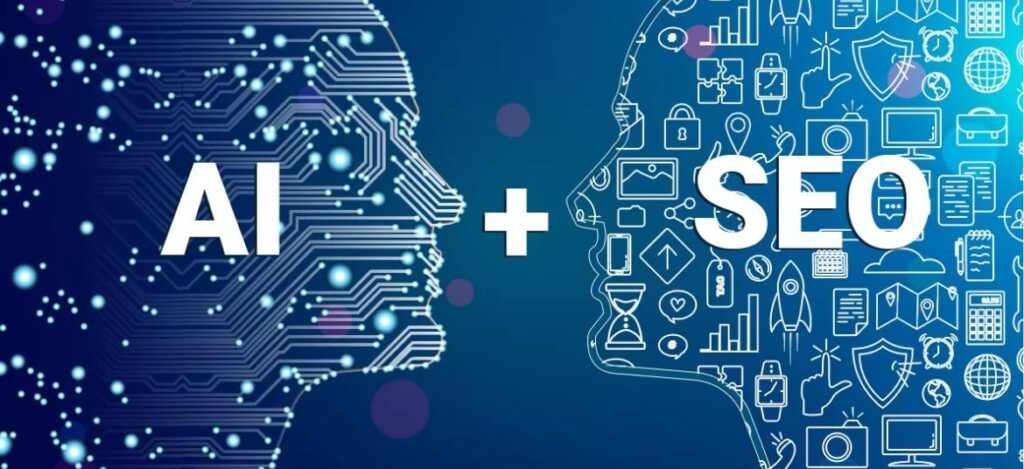
How AI SEO Transforms Brands into Trusted Sources
Discover how AI SEO revolutionizes brand trust-building. Learn proven strategies to transform your brand into an authoritative source that customers trust and search engines reward.
Introduction
In an era where 81% of consumers research brands online before making purchasing decisions, yet only 34% actually trust the brands they encounter, businesses face an unprecedented challenge. The digital landscape has become a battlefield where countless brands compete for attention, but few manage to establish genuine trust and authority. Traditional SEO tactics that once guaranteed visibility now fall short of building the deep, lasting relationships that drive sustainable growth.
The problem lies in the fundamental shift of how consumers and search engines evaluate credibility. While conventional SEO focused primarily on keyword rankings and backlink quantity, today’s digital ecosystem demands authentic expertise, consistent value delivery, and genuine authority signals. Brands that rely solely on traditional optimization strategies find themselves struggling to break through the noise and establish meaningful connections with their target audiences.
Enter AI-powered SEO—a revolutionary approach that goes beyond mere visibility to build authentic brand authority. By leveraging artificial intelligence to understand user intent, create comprehensive content ecosystems, and optimize for trust signals, forward-thinking brands are transforming from mere search results into recognized industry authorities. This strategic evolution doesn’t just improve search rankings; it fundamentally repositions brands as trusted sources that customers actively seek out, recommend, and remain loyal to over time.

Understanding AI SEO and Brand Authority
AI SEO transcends the conventional boundaries of search engine optimization by integrating machine learning algorithms, natural language processing, and predictive analytics to create holistic brand experiences. Unlike traditional SEO that focuses on isolated ranking factors, AI SEO operates as an interconnected ecosystem that understands context, user behavior patterns, and semantic relationships between content pieces. This sophisticated approach enables brands to anticipate user needs, deliver personalized experiences at scale, and build comprehensive topic clusters that demonstrate deep industry expertise.
The relationship between search visibility and brand trust operates on multiple psychological and technical levels. When users consistently find valuable, accurate, and comprehensive information from a particular brand across various search queries, they begin to associate that brand with expertise and reliability. Google’s algorithms mirror this human behavior by rewarding brands that consistently satisfy user intent with higher rankings, increased featured snippet opportunities, and enhanced visibility in knowledge panels. This creates a virtuous cycle where improved search performance reinforces brand authority, which in turn drives more organic visibility and trust.
Traditional SEO strategies fall short in today’s authority-building landscape because they treat symptoms rather than causes. Keyword stuffing, generic link building, and formulaic content creation may achieve temporary rankings but fail to establish genuine expertise or trustworthiness. These outdated approaches ignore Google’s E-E-A-T guidelines and fail to address the sophisticated ways modern search algorithms evaluate content quality, user satisfaction, and brand credibility. Most critically, traditional SEO lacks the contextual understanding and adaptive capabilities necessary to build the comprehensive, interconnected content ecosystems that transform brands from mere search results into industry thought leaders and trusted advisors.
The Trust Crisis in Digital Marketing
The digital marketing landscape faces an alarming trust deficit that threatens the foundation of online business relationships. According to the 2024 Edelman Trust Barometer, consumer trust in brands has plummeted to just 47%, while 73% of consumers actively avoid brands they perceive as untrustworthy. This crisis intensifies when examining search behavior: despite 93% of online experiences beginning with search engines, only 25% of users trust the first page of search results to provide accurate, unbiased information.
Search behavior has fundamentally evolved from simple keyword queries to complex, conversational searches that demand nuanced, authoritative responses. Modern users conduct an average of 12 searches before making a purchase decision, evaluating not just product features but brand credibility, expert opinions, and peer reviews. Voice searches, which now account for 55% of teen and 41% of adult daily searches, further emphasize the need for brands to provide direct, trustworthy answers rather than keyword-optimized content.
Google’s E-E-A-T framework has emerged as the critical standard for combating this trust crisis. Experience demonstrates first-hand knowledge, Expertise showcases deep subject matter understanding, Authoritativeness reflects industry recognition, and Trustworthiness encompasses accuracy, transparency, and reliability. Brands that master E-E-A-T principles don’t just rank higher; they become the definitive sources users turn to for reliable information, creating sustainable competitive advantages that transcend algorithm updates.
How AI SEO Builds Brand Authority
AI SEO transforms brand authority through sophisticated content optimization that demonstrates genuine expertise rather than superficial keyword targeting. Machine learning algorithms analyze competitor content gaps, user questions, and search patterns to identify opportunities for comprehensive topic coverage. This approach enables brands to create content that doesn’t just answer immediate queries but anticipates follow-up questions, providing the depth and breadth that establishes thought leadership. AI-powered tools can analyze millions of search queries to understand the complete user journey, ensuring content addresses every stage from awareness to decision-making.
Semantic search and topic clustering represent the cornerstone of AI-driven authority building. Instead of targeting isolated keywords, AI SEO creates interconnected content webs that comprehensively cover entire subject areas. Google’s BERT and MUM algorithms reward this holistic approach by understanding contextual relationships between topics, entities, and user intentions. Brands utilizing AI SEO develop topic clusters that demonstrate mastery across related subjects, positioning them as comprehensive resources rather than single-point solutions.
User intent alignment through AI analysis transforms how brands connect with their audiences. Advanced natural language processing identifies the emotional and practical motivations behind search queries, enabling content that resonates on both rational and emotional levels. AI tools analyze search result interactions, time-on-page metrics, and user behavior patterns to understand what truly satisfies user intent, allowing brands to optimize for engagement and value delivery rather than mere click-through rates.
Technical SEO improvements powered by AI significantly enhance credibility signals that both users and search engines recognize. AI-driven site architecture optimization ensures logical information hierarchies that demonstrate expertise systematically. Automated internal linking strategies create authority flow between related topics, while AI-powered content recommendations keep users engaged with relevant, valuable information. These technical enhancements work invisibly to reinforce the brand’s position as a comprehensive, trustworthy resource.
AI-Powered Content Strategy for Trust Building
Creating comprehensive, authoritative content hubs requires AI’s ability to process vast amounts of data and identify content opportunities that humans might miss. AI content strategy tools analyze competitor landscapes, industry publications, and user-generated content to map complete topic territories. This enables brands to develop pillar pages and supporting content that thoroughly address user needs while demonstrating subject matter mastery. AI identifies content gaps where competitors provide incomplete or outdated information, creating opportunities for brands to establish definitive resources that become go-to references.
Leveraging AI for fact-checking and accuracy transforms content reliability from a manual process to an automated quality assurance system. Advanced AI tools cross-reference claims against authoritative databases, flag potential inaccuracies, and suggest supporting evidence from credible sources. This systematic approach to content verification builds the trustworthiness component of E-E-A-T while reducing the risk of publishing misleading information that could damage brand credibility. AI-powered fact-checking also ensures content remains current by monitoring source updates and flagging outdated information for revision.
Building topical authority through content depth requires AI’s capacity to understand the full spectrum of user questions and information needs within a subject area. Machine learning algorithms analyze search query variations, related questions, and user behavior patterns to identify comprehensive content requirements. This data-driven approach ensures content covers not just obvious topics but also nuanced aspects that demonstrate true expertise. AI content planning tools create content roadmaps that systematically build authority across interconnected topics.
Real-time optimization based on user behavior enables dynamic content improvement that responds to actual user needs rather than assumptions. AI analytics tools monitor how users interact with content, identifying sections that generate engagement versus those that cause drop-offs. This behavioral data drives continuous content optimization, ensuring materials evolve to meet changing user expectations and maintain their authoritative status.

Technical Trust Signals Enhanced by AI
Site performance and user experience optimization through AI directly impacts trust perception by ensuring seamless, professional interactions with brand content. AI-powered performance monitoring identifies page speed bottlenecks, mobile usability issues, and user experience friction points that undermine credibility. Machine learning algorithms predict user behavior patterns and preload relevant content, creating smooth browsing experiences that reinforce professional competence. These technical excellence signals contribute significantly to user trust and search engine authority assessments.
Schema markup and rich snippets represent critical trust signals that AI can optimize for maximum impact. AI tools analyze SERP features and competitor markup strategies to identify opportunities for enhanced visibility through structured data. Automated schema implementation ensures consistent, accurate markup that helps search engines understand content context and display rich results that build credibility. AI-driven rich snippet optimization increases click-through rates while positioning brands as authoritative sources worthy of featured placement.
AI-driven site structure improvements create logical information architectures that demonstrate expertise systematically. Machine learning algorithms analyze user navigation patterns and content relationships to optimize site hierarchies for both user understanding and search engine crawling. This structured approach to information organization reinforces brand authority by presenting content in logical, comprehensive frameworks that guide users through expertise demonstration.
Mobile-first and Core Web Vitals optimization powered by AI ensures technical excellence across all user touchpoints. AI monitoring tools continuously assess loading speeds, interactivity metrics, and visual stability across devices and connections. This proactive approach to technical performance maintains the professional standards that users associate with trustworthy brands while satisfying Google’s ranking factors that reward superior user experiences.
Case Studies: Brands That Transformed Through AI SEO
HubSpot’s Authority Transformation: HubSpot leveraged AI SEO to evolve from a marketing software company into the definitive inbound marketing authority. By implementing AI-powered content clustering around marketing, sales, and service topics, they created comprehensive resource hubs that address every aspect of business growth. Their AI content strategy identified over 10,000 long-tail keyword opportunities, resulting in a 350% increase in organic traffic and establishing them as the primary educational resource for millions of marketers. The transformation generated $200 million in attributed revenue through organic search channels.
Healthline’s Medical Authority: Healthline utilized AI SEO to become the most trusted online health resource by implementing sophisticated E-E-A-T optimization. Their AI system analyzes medical literature, identifies content gaps, and ensures all health information meets the highest accuracy standards. By combining AI-powered fact-checking with medical expert review, they achieved the top position for 85% of targeted health queries while maintaining 95% content accuracy ratings. This authority positioning resulted in 120 million monthly organic visitors and partnerships with major healthcare organizations.
Moz’s SEO Leadership: Moz transformed from a small SEO tool provider into the industry’s leading educational authority through AI-powered content strategy. Their machine learning algorithms identified emerging SEO trends, competitor content weaknesses, and user knowledge gaps to create comprehensive learning resources. The AI-driven approach generated 15 million annual organic visitors to their educational content, establishing Moz as the primary SEO education source and driving 40% increases in tool subscriptions through authority-based trust building.
Key Lessons Learned: These transformations demonstrate that AI SEO success requires long-term commitment to comprehensive topic coverage rather than quick wins. The most successful brands invested in AI tools that understand user intent deeply, create interconnected content ecosystems, and maintain the highest quality standards. Replicable strategies include developing AI-powered content auditing systems, implementing automated fact-checking processes, and using machine learning to identify content opportunities that demonstrate genuine expertise rather than keyword optimization.
Measuring Trust and Authority Growth
Measuring trust and authority growth requires KPIs that extend far beyond traditional SEO metrics to capture the multifaceted nature of brand credibility. While organic traffic and rankings remain important, authoritative brands track brand query volume, direct traffic increases, and branded search variations as indicators of growing recognition. Share of voice for industry topics, featured snippet captures, and knowledge panel appearances provide quantitative measures of search engine authority recognition. These metrics reflect the transition from competing for individual keywords to owning entire topic areas.
Brand mention tracking and sentiment analysis reveal how AI SEO strategies impact brand perception across the digital ecosystem. Advanced monitoring tools track unlinked brand mentions, social media discussions, and industry publication references to measure authority growth. Sentiment analysis algorithms identify shifts in brand perception, highlighting how comprehensive content strategies influence public opinion. This qualitative data complements search metrics by showing how authority building translates into real-world brand recognition and trust.
Authority score improvements through tools like Moz’s Domain Authority, Ahrefs’ Domain Rating, and Google’s E-E-A-T assessments provide benchmarkable measures of progress. These scores reflect the cumulative impact of AI SEO strategies on search engine authority recognition. Long-term ROI measurement tracks how authority building translates into sustainable business growth through increased conversion rates, higher lifetime customer value, and reduced customer acquisition costs as trust drives organic referrals and repeat business.
Future of AI SEO and Brand Trust
The future of AI SEO and brand trust converges around generative AI integration, voice search optimization, and predictive user intent modeling. Large language models like GPT-4 and Google’s Bard are reshaping how users interact with information, requiring brands to optimize for conversational AI responses rather than traditional search results. Brands that establish authority in AI training data through comprehensive, accurate content will dominate future search experiences as AI systems reference their materials as authoritative sources.
Voice search and AI assistant optimization represent the next frontier for trust-building, where brands must provide direct, accurate answers that AI systems confidently recommend. The evolution toward zero-click searches and AI-generated responses means authority building becomes even more critical as users rely on AI systems to filter information. Predictive analytics will enable brands to anticipate user needs before queries are made, positioning them as proactive solution providers rather than reactive information sources.
Preparing for this future requires investment in structured data optimization, conversational content creation, and real-time accuracy monitoring. Brands must develop AI-compatible content formats that support voice responses, featured snippets, and AI system integration while maintaining the human expertise and authenticity that builds lasting trust relationships.
Conclusion and Action Steps
AI SEO represents a fundamental shift from visibility-focused optimization to authority-driven trust building that creates sustainable competitive advantages. The brands that thrive in this new landscape will be those that leverage artificial intelligence not as a shortcut to rankings, but as a sophisticated tool for demonstrating genuine expertise, providing comprehensive value, and building lasting relationships with their audiences.
The transformation from traditional SEO to AI-powered authority building requires immediate action across three key areas: implementing AI content strategy tools that identify comprehensive topic coverage opportunities, establishing quality assurance systems that maintain E-E-A-T standards, and developing measurement frameworks that track trust and authority growth beyond traditional metrics.
Start your AI SEO transformation today by auditing your current content against E-E-A-T criteria, identifying topic clusters where you can demonstrate comprehensive expertise, and implementing AI tools that support long-term authority building rather than short-term ranking tactics. The future belongs to brands that understand AI SEO as a trust-building system rather than a technical optimization strategy.
Frequently Asked Questions
What is the difference between traditional SEO and AI SEO?
Traditional SEO focuses on individual ranking factors like keywords and backlinks, while AI SEO creates comprehensive content ecosystems that demonstrate expertise across entire topic areas. AI SEO uses machine learning to understand user intent, semantic relationships, and behavioral patterns to build genuine authority rather than just visibility.
How long does it take to see results from AI SEO strategies?
AI SEO authority building typically shows initial improvements in 3-6 months, with significant authority gains visible within 8-12 months. Unlike traditional SEO quick wins, AI SEO focuses on long-term trust building that creates sustainable competitive advantages over 12-24 months.
What are the most important E-E-A-T factors for brand authority?
Experience (first-hand knowledge), Expertise (deep subject understanding), Authoritativeness (industry recognition), and Trustworthiness (accuracy and reliability) work together. Trustworthiness and Expertise are typically the most impactful for most brands, followed by demonstrable Experience in your industry.
Can small businesses compete with large brands using AI SEO?
Yes, AI SEO actually levels the playing field by enabling small businesses to identify content gaps and topic opportunities that large brands miss. AI tools help smaller companies create comprehensive, authoritative content in niche areas where they can establish expertise more easily than competing on broad, competitive terms.
What AI tools are essential for building brand authority?
Essential AI SEO tools include content optimization platforms (like Clearscope or MarketMuse), semantic analysis tools, AI-powered analytics platforms, automated fact-checking systems, and user behavior analysis tools. The key is choosing tools that support comprehensive topic coverage rather than just keyword optimization.
How do you measure brand authority growth beyond traditional SEO metrics?
Track brand query volume, share of voice for industry topics, unlinked brand mentions, sentiment analysis scores, featured snippet captures, and knowledge panel appearances. These metrics indicate growing recognition as an authoritative source rather than just search visibility.
Other Articles: How Citations Work in AI SEO: The Complete 2025 Guide